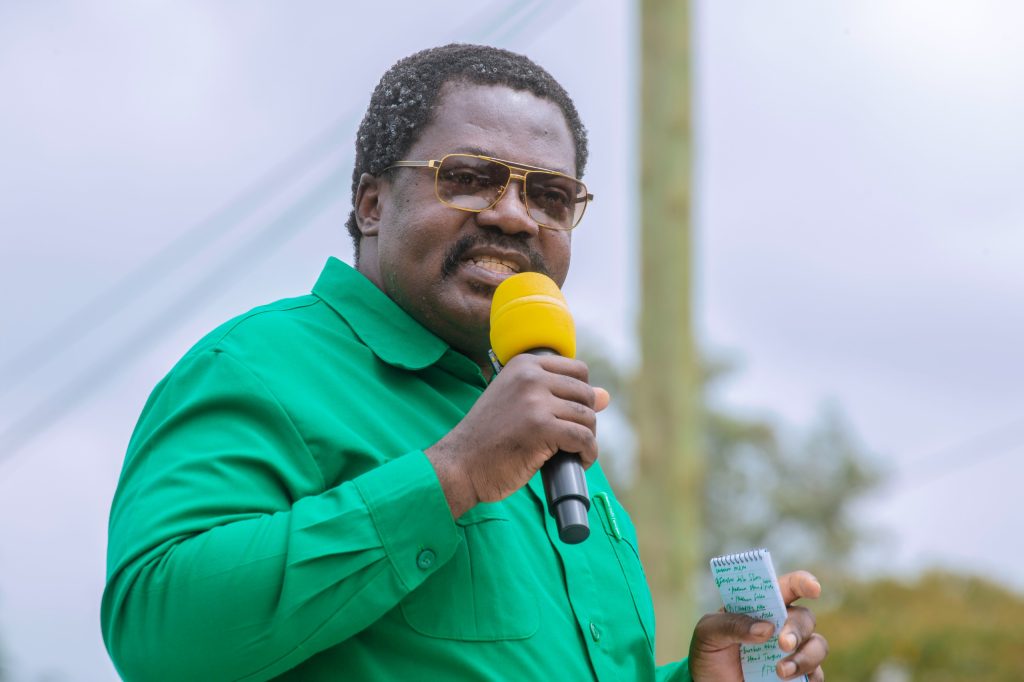In politics, leaders often employ tactics aimed at shaping public perception and securing political interests. Recently, a statement by Dr. Emmanuel Nchimbi, the Secretary-General of Tanzania’s ruling Chama Cha Mapinduzi (CCM) party, sparked a discussion on the methods used to promote democracy and electoral inclusion.
In his statement, Dr. Nchimbi expressed CCM’s stance on allowing broader election participation despite some initial disqualifications among candidates.
Here, we analyze whether this statement reflects a “Problem-Reaction-Solution” approach, where a problem is created and then resolved for political gain, or whether it demonstrates CCM’s commitment to diplomatic and reconciliatory politics for strengthening Tanzanian democracy.
Context and Substance of Dr. Nchimbi’s Statement
Dr. Nchimbi mentioned that some candidates from various parties had encountered objections or disqualifications in early stages of the electoral process.
Following discussions with CCM’s Chairman, he publicly urged government authorities to reconsider minor objections, allowing broader participation. His message appeared to affirm that CCM values democracy and the public’s right to participate fully in elections.
The “Problem-Reaction-Solution” Strategy: Is CCM Employing This Tactic?
The “Problem-Reaction-Solution” method is a political strategy in which a leader or group creates or emphasizes a problem, which then causes concern or a demand for action among the public, ultimately leading to a solution offered by the originators themselves.
ALSO, READ: Was “Special Status” a Major Demand from the Diaspora, or Did They Demand Dual Citizenship?
In this case, we might ask if CCM and Dr. Nchimbi anticipated the objections and intentionally allowed them to surface so they could then present themselves as advocates for fairness.
A. Problem: Candidate Objections and Disqualifications
Dr. Nchimbi noted that certain candidates, including those from opposition parties, faced disqualifications early in the process. While the disqualifications were made in adherence to legal procedures, the objections may create the impression that there’s a concerted effort to control who participates in the election, raising questions about the fairness of the process.
B. Reaction: Public Concern Over Fairness
These objections have raised concerns and questions regarding electoral integrity and fairness among citizens. The public reaction is a natural response to the perception that the electoral process may lack inclusivity. Voters may question the credibility of the political system as a whole, leading to demands for a more transparent and inclusive election process.
C. Solution: CCM and Dr. Nchimbi as Advocates for Fairness
Dr. Nchimbi effectively presents a “solution” to the perceived problem by calling for leniency on minor disqualifications. This solution positions CCM as a champion of democratic inclusion and may encourage the public to see CCM as committed to upholding democratic values. This benefits CCM by reinforcing its image as a defender of public interests, even though the disqualifications could have been managed earlier in a way that prevented such objections altogether.
Fact-Checking Dr. Nchimbi’s Statement
It is essential to scrutinize whether these objections were genuinely widespread or necessary and if they affected candidates across all parties equally.
Reports indicate that many of the disqualified candidates are from opposition parties, suggesting that objections might have served as a means to curb political competition against CCM in specific areas.
Although Dr. Nchimbi’s statement advocates disregarding minor errors, it is crucial to consider whether the remedy he proposes will apply fairly to candidates from all parties.
Public Sentiment and the Call for Fairness
Many citizens are eager to see justice, equity, and transparency in the electoral process. While Dr. Nchimbi’s position as an advocate for fairness may resonate with some, there could also be skepticism regarding CCM’s motives.
Some may see this move as a political strategy to win public favour, especially among those already doubtful of CCM’s handling of the electoral process.
Conclusion: Is This a “Problem-Reaction-Solution” Approach or Diplomatic Politics?
Dr. Nchimbi’s approach mirrors aspects of the “Problem-Reaction-Solution” tactic while also taking on the appearance of diplomatic politics, where the ruling party positions itself as a guarantor of fairness and equity.
Ultimately, this action could be seen as an effective political manoeuvre to boost CCM’s standing by portraying it as a champion of public participation and democratic fairness. In this light, CCM is strategically positioning itself as a party that supports everyone’s right to participate, indirectly earning public trust and credibility.
However, citizens and the media must scrutinize this approach to ensure that democracy is genuinely upheld and that issues of fairness are not manipulated for popularity.
Recommendations: Tanzania needs stronger electoral laws and transparency to ensure that tactics like “Problem-Reaction-Solution” are used sparingly and with genuine accountability. Further, oversight of the fairness of these methods is necessary to ensure that democracy is not undermined by political positioning.

